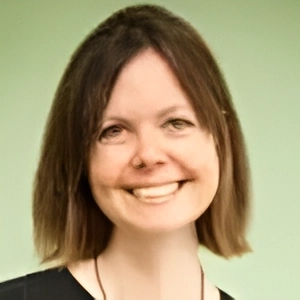Ten, Ta, To…Do, Re, Mi…If you aren’t studying Czech, those sets of letters may be interchangeable for you – or at least the first three a bunch of nonsense. If you are a student of Czech, you might be grimacing your teeth. ‘Ten, ta, to’ are the demonstrative pronouns used for teaching the masculine, feminine or neuter gender of Czech nouns.
In order to speak some good Czech grammar, they are crucial. Unfortunately, there isn’t an easy or logical explanation to learn them, only a grammatical one. Basically you have to memorize them.
Soon, though, you may be able to practice you ten, ta, tos on the go. A new app called ‘Ten, Ta’ To’ is currently being produced as a training tool to remember the Czech grammatical genders. Suzanna Halsey, a Czech expat living in New York is spearheading the project, assisted by the New York branch of the Czechoslovak Society of Arts and Sciences (CSAS).
“In more than thirty years of teaching Czech in New York City I often observed my students’ frustration with remembering grammatical genders. For many learners, the concept of genders in the case of inanimate objects and abstract words is foreign and puzzling. For example, why is the noun “kostel” (a church) masculine, and the similarly sounding noun “postel” (a bed) feminine?” Halsey said.
“So, inspired by the ubiquitous smart phone technology, I decided to produce an application as a tool on-the-go for learning and practicing grammatical genders of Czech nouns.”
Basically, the app will help the user memorize the gender of 4,000 nouns using a game format. The nouns with incorrectly identified genders will be reintroduced randomly in the next round of the game until you remember them. There will be a quick look-up of a noun’s gender, and a grammar overview and statistics of one’s progress. You’ll also be able to look up the noun’s definition and usage via an online dictionary.
When complete, the app will be free to download from both the App Store and Google Play.
Halsey is working with Lubos Mikusiak, a Slovak developer living in Amsterdam, who has created similar apps for German, French and Dutch. Halsey (also a student of German) was inspired by the German app, Der, Die, Das. They are still in the fundraising stage and are about halfway to reaching their goal. Halsey is confident the app will be ready to go by December of this year. If you’d like to contribute, you can make a donation via PayPal (you don’t need a PayPal account).
Halsey is also planning to do some crowdfunding via Indiegogo. CSAS and the Czech Ministry of Foreign Affairs provided partial funding. CSAS (also known by its Czech acronym SVU (Společnost pro vědy a umění), is a gloabl organization founded in 1958 in Washington DC by Czech and Slovak émigré academics. Individual chapters organize lectures, readings, concerts, film screenings, exhibits and other cultural events.
“This Ten Ta To project is also a test of how much interest and support the Czech language can generate in general,” Halsey said. “We hope that the international Czech community, companies and organizations will express support as well and show that Czech matters.”
And why does Czech matter?
“A culture can be truly understood only through its language. The Czech language is one of the most beautiful languages, I am told by my students. Especially singers and musicologists tell me they love the sound of it,” Halsey said. “Now, the sound is made by the words that inflect and follow those atrocious grammatical rules. If one speaks incorrectly the sound and the rhythm is different.
“Czech is a language of a small nation with a rich culture, as proven by the examples of Antonín Dvořák, Leoš Janáček, Karel Čapek, Václav Havel or Miloš Forman, to name just a few of many better-known Czechs. It matters.”
If you’re considering a course to learn the Czech Language, you can find a great selection right here.












 Reading time: 3 minutes
Reading time: 3 minutes 




















